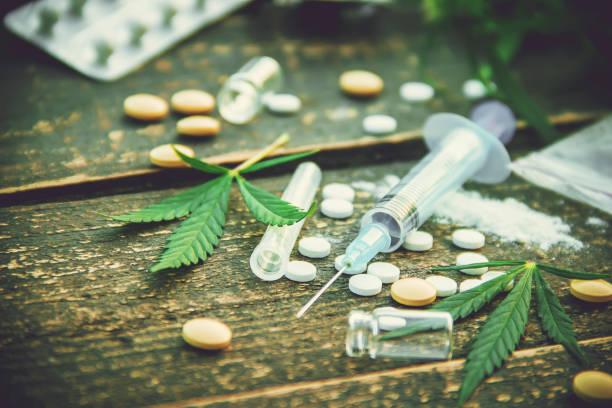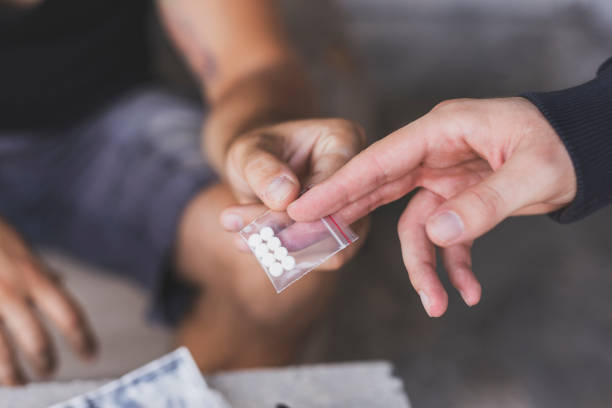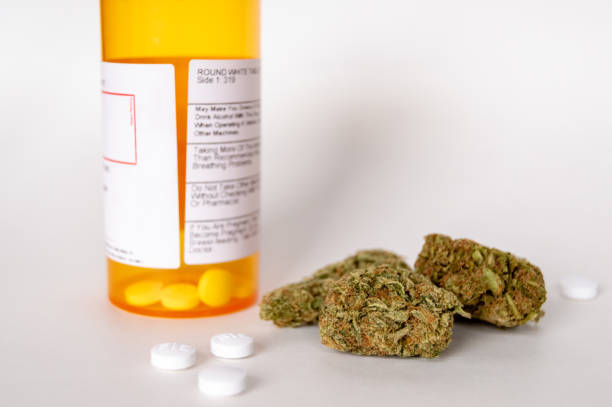Excess of everything is bad. Eating too many sweets will make you sick. It is possible to develop skin cancer from too much sun exposure. But it turns out that too much marijuana can deteriorate your health quickly. This blog will discuss weed and what overdosing it would bring.
Weed is fairly common; it is a drug that many people use and is thought to be harmless. Despite this, there are some serious risks inherent in using marijuana. The first danger is that marijuana can be addictive. It’s not physically addictive like cocaine, but it can be habit-forming. If you use enough of it over a long period of time, your body will start to crave it, and you’ll feel withdrawal symptoms if you try to quit using it.
Are There Any Overdose Risks Of Marijuana (Weed)?
Weed, also known as cannabis or marijuana, has been a contentious issue over the preceding several decades. Overdosing is most often caused by polysubstance abuse, which involves taking multiple drugs to reach the desired state.
There are some drugs with whom mixtures can be lethal, while repercussions are heightened if marijuana is mixed with alcohol. It’s the most common drug combination implicated in car accidents when marijuana and alcohol are consumed together. Aside from the obvious risks associated with mixing two distinct intoxicants, alcohol may increase blood levels of marijuana’s primary psychoactive ingredient, THC.
The following are additional risk factors for consuming the drug:
- Pre-existing health problems, such as asthma or heart disease, can lead to fatal complications
- The detailed history of use (quantity and duration)
- The use of prescription medications in combination
An Increase In Concerns About Overdoses
The potential for marijuana overdose and adverse effects has gained the attention of medical and health experts for several reasons. Here are some of them:
-
Marijuana Use Is on the Rise
The cultivation and use of weed have been lawful in California since 1996 when it was first made for medicinal use. Many states allow the recreational use of marijuana, including California, Alaska, Colorado, and more. The approval of recreational weed has led to a double-digit increase in dispensaries.
The public has grown accustomed to the non-medical consumption of marijuana nationwide. Still, many in the medical field report being surprised by the acceleration of marijuana use in legalized states. A spike has occurred in marijuana-induced medical emergency ward visits due to all that new exposure.
-
The Intensity of THC Increases
Weed farmers are today much more successful than they were in the past, just as modern farmers are getting much greater yields from crops like corn and beans. The THC levels of marijuana have gone up tremendously since the current generation of farmers was born. In 1993, THC concentrations were 3.4%; by 2007 to 2008, they were 8.8%.
Treatment Program Of Marijuana (Weed) Overdose
It is typically not necessary to seek critical care after a marijuana overdose due to mild symptoms. Still, it depends on your situation; the conventional drug therapy programs may help get you through the lingering impacts of the overdose and get you back on your feet. There are several life-changing addiction treatments that address such issues. American addiction centers maintain a positive outlook and are open to receiving patients that want to rid of their drug problems.
-
Inpatient Facility
People who struggle with drug abuse, addiction, or overdose receive 24-hour medical care and therapeutic support in an inpatient facility. The patient stays in an onsite facility for 30 to 90 days and is then transferred to a smaller facility.
-
Outpatient Therapy
The outpatient therapy typically lasts one to two hours a day, one to two days during the week. In contrast to other types of treatment, this therapy is less structured and supportive but is useful for people wishing to attend addiction treatment facilities but must also attend to work and family obligations.
It is common for people to receive outpatient therapy after taking higher levels of treatment. American Addiction Centers maintain close relationships with a variety of insurance providers at treatment facilities. Make sure your insurance is accepted at an American Addiction Centers location.
Partially hospitalized patients are treated in the hospital during the day but can go home at night after their addiction treatment. This program is like an inpatient program; however, it does not offer 24-hour support. A patient typically attends 6 to 8 hours daily, four to five days a week. Those seeking addiction treatment have access to many private and convenient solution helplines.
-
Intensive Outpatient Program
An intensive outpatient program (IOP) usually lasts three hours daily for three days a week, which is more intense than regular outpatient therapy. Despite the intensive workload, the schedule accommodates family and work commitments.
-
Holistic Therapy
As part of holistic therapy, the goal is to promote optimal health and wellness for the client by treating both the body and the mind. This aims to maintain physical, emotional, and spiritual fitness to avoid imbalances that could negatively impact health problems. As a result, marijuana addiction and abuse are not the only things we address. Holistic therapy might involve practicing a healthier lifestyle and improving your mental health disorder.
-
Cognitive Behavioral Therapy
Cognitive behavioral therapy educates people about the need to identify and replace faulty thoughts and thought patterns conducive to drug use with more accurate and healthy ones. Furthermore, the behavioral health industry teaches how to change harmful behaviors into healthy ones, enhancing recovery and stopping substance abuse.
Symptoms and Signs of Marijuana Overdose
How does marijuana overdose affect you? The symptoms of a marijuana overdose are often more intense manifestations of the drug’s usual intoxications, but they can also be specific. An overdose may intensify the following marijuana intoxication symptoms:
- A euphoric feeling
- Perception of sensory intensity
- Movement impairment
- Feelings of depression
- Fright and anxiety
- Eye inflammation
- Deflation of heart rate
- Psychosis
Marijuana overdose symptoms include:
- Panic attacks
- Irritability
- Suppression of the respiratory system
- Myoclonus (jerky muscle spasms)
- A loss of control over body movements
- Asthma-like spasms of the airways
Symptoms of a life-threatening overdose in children include lethargy and excessive muscle movements (hyperkinesis).
An unusual condition related to chronic marijuana use is known as cannabinoid hyperemesis syndrome (CHS). Cannabis overdose chronically induces bouts of intense, persistent, incapacitating vomiting for days. The patient must be admitted to receive intravenous fluid treatment and supportive care.
Is It Dangerous To Consume Excessive Marijuana?
The conversation about danger has shifted a bit due to some recent recreational trends. Cannabis is primarily an extract of tetrahydrocannabinol or THC. CBD strains around the world have experienced exponential increases in THC levels over the last decade. The combination of this and the use of newer consumption methods like dabbing and edibles have made marijuana use less predictable than traditional smoking methods.
The dabbing process involves smoking a high concentration of hash or wax to achieve an instant, intense high feeling. Food products like candies or desserts infused with THC are edibles, as their name implies. The real problem lies in the dosages. The THC levels in edibles are still not regulated in many states to this day. Approved sellers are mostly left to guess their product’s THC content when advertising it.
The first recreational marijuana use state in the country was Colorado. Colorado dispensaries’ biggest problem is marijuana tourists visiting from other states. The people then consume THC gummies and dabs incorrectly believing that these products contain the same amount of THC. The term ‘marijuana overdose’ may be overstated in these instances, but someone who got too high too fast has certainly needed medical attention.
Aspects Of Risk And Danger
Several active ingredients are present in marijuana, which makes it a strange drug. Most people consider that cannabis contains hundreds of other cannabinoids besides THC. Scientists cite different numbers, and each of these acts differently. The psychoactive effects of THC can be similar to those of stimulants when you consume too much. Studies indicate a strong relationship between cannabidiol (CBD) and sedation.
There can be wide variations in the effects of marijuana use. Marijuana smokers have been reported to suffer heart arrhythmias and sudden cardiac arrests. Seizures and reduced seizures seem to depend on which type and amount of cannabinoids are used. However, the contributors and producers are not liable for any adverse consequences; alleged marijuana overdose is not their responsibility.
There have been several publications describing marijuana toxicity:
- Heart Arrhythmias: Many doctors believe marijuana use leads to heart disturbances. Because pot and other drugs often go hand-in-hand, it is very hard to isolate the cause when your heart starts racing. It’s hard to tell whether the pot or the alcohol caused problems since both intensify the effects.
- Psychosis or Paranoia: Several reports have described severe psychotic episodes accompanied by hallucinations and negative associations. Sometimes the psychosis surpasses the duration it takes to metabolize THC.
- Uncontrollable Vomiting: It is rare for THC to be in conjunction with persistent vomiting syndrome, despite its anti-nausea properties. A hot shower can often relieve the symptoms of uncontrollable vomiting due to chronic cannabis use.
Weed and Its Impact on Teens
According to a Duke University study, marijuana abuse could have long-term consequences. In a survey of 1,037 people, it was found that those who regularly smoked marijuana as teenagers lost 8 points in IQ between ages 13 and 38.
Researchers do not believe that adolescent marijuana use is harmless, although the science is relatively inconclusive about the long-term effects. Another observational study links youth cannabis use to a host of learning difficulties, mental challenges, and schizophrenia risk, similar to that mentioned above.
Here’s How To Deal With An Overdose
It is possible to reduce the unpleasant side effects of overindulging if you or a friend have devoured it.
-
Take It Easy
If you feel anxious, telling yourself that you will be fine is a good self-soothing technique. I think it is vital to acknowledge that overdosing on cannabis has never led to death. The symptoms will eventually pass, even though it doesn’t feel like it happens.
-
Get Some Food To Eat
If you’re feeling shaky or nauseous, try eating something. Although it may seem counterproductive, it makes a big difference to some people, especially those with dry mouths.In such cases, you can also try detox tea to hydrate and cleanse yourself at the same time.
-
Stay Hydrated
Be sure to drink enough liquids if you are experiencing dry mouth. Dehydration is especially dangerous if you are vomiting. You can ground yourself by slowly sipping water if you are panicking.
-
Take A Nap
Waiting for the effects to subside may sometimes prove to be the best course of action if you wait for cannabis to leave your body.
-
Be Careful Not To Overstimulate
It is possible to feel anxious and even paranoid if there is too much going on around you. Make yourself think calmly by turning off the music and the TV, leaving the crowd, and relaxing in a quiet place like your bedroom or bathroom.
-
Sniff Or Chew Black Peppercorns
Several people report that black peppercorns soothe the anxiety and paranoia associated with overindulgence in cannabis. Trusted Source reports that black peppercorns are rich in caryophyllene, which may inhibit THC’s psychoactive properties. However, this remedy has not been rigorously studied in humans, and no evidence supports its effectiveness.
FAQs Regarding Weed Overdosing
Do marijuana overdoses lead to death?
A truth remains objectively true, regardless of what people say: it is unlikely or virtually impossible to overdose on marijuana alone. The national institute on drug addiction states that cannabis alone has not resulted in deaths from overdoses.
It was claimed by a Louisiana coroner in June of 2019 that a highly-concentrated THC oil caused the first death due to a marijuana overdose. However, medical experts have doubted the autopsy’s findings. Currently, the national institute of drug defending drug users’ rights note it is extremely unlikely that cannabis users will die from an overdose. How much would it take to imagine what it would take for someone to die from marijuana? To reach this level, a person must consume 1500 pounds of cannabis in 15 minutes.
Can weed stay in your system for a long time?
Weed’s long-term effects mostly rely on how much you consume. Chronic marijuana users can have marijuana detected in their urine for 30 days or longer following their cessation. In the event that you have used marijuana once (and you do not normally use it), you can detect it in your urine for up to 72 hours after.
You can’t cure a marijuana high instantly, but you can calm down your anxiety by breathing deeply, watching soothing videos, or listening to calming music. Perhaps you can even call a friend to help you stay calm. It is important to prevent dry mouth brought on by marijuana. Some people report feeling less high after eating carb-rich, nutrient-dense foods, although there is no scientific evidence. Evidence suggests that cannabidiol (CBD) effectively reduces the psychoactive effects of THC. You should consult your doctor before taking any supplement, or at least start with a small dose until you feel comfortable using it.
Conclusion: Can Weed Lead To Overdosing?
Currently, marijuana overdose is still controversial, and there is no clear answer on how much marijuana is enough to overdose.However, you must always consider buying such substances from a reputed THC or CBD brand. Weed isn’t completely safe, don’t believe the mantra. A critical mind and an informed consumer are the two components that make anything safe.
Despite the fact that no one has ever died from overdosing on marijuana alone, it is possible to consume too much and have a negative reaction. This is more common with edibles and high-THC products, as they tend to cause more of a response. It’s important to watch how much cannabis you consume at a time, especially if you’re a newcomer to cannabis. Allow yourself for at least two weeks to feel the effects before using more.






